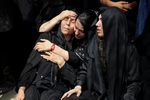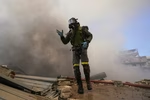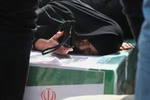Locals in Vares guard 'the grave of Christ' each Easter
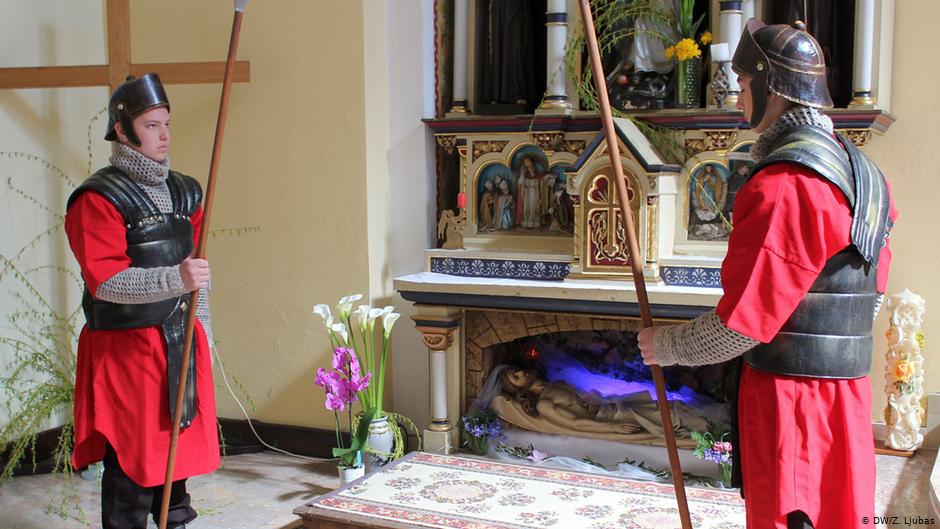
The marching of two men dressed as Roman soldiers brakes the silence in the small church in the central Bosnian town of Vares. Just before the main altar, they turn left and under the watchful eye of the centurion, two soldiers replace the two already guarding an improvised grave of Jesus Christ.
Oglas
This watch starts every Easter Friday and lasts throughout the holidays for centuries.
“When the angel showed up, when that light showed up and the rock which sealed the tomb (of Jesus) moved, the Roman guards all fell down,” 20-year-old Goran Kuhar told Deutsche Welle.

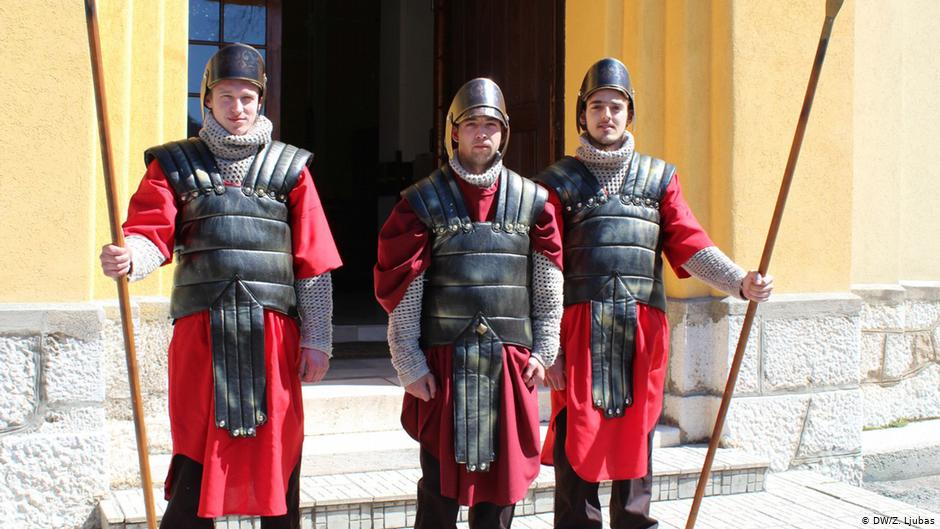


DW/Z. Ljubas | DW/Z. Ljubas
Više
DW/Z. Ljubas | DW/Z. Ljubas
Više
DW/Z. Ljubas | DW/Z. Ljubas
Više“That is what happens here as well on midnight Easter Saturday, our guards symbolically drop on the floor,” he added.
Vares is the only place in Bosnia where locals pass on this tradition from one generation to the next.
The tradition most probably came from the south, from Dalmatia, according to the church’s rector, Mirko Majdandzic. He explained that Vares was known as a town of miners and blacksmiths and that many workers who came there brought their traditions with them.
In the local church, there are usually two soldiers guarding the improvised grave and they are being replaced every 15 minutes.
When Vares established firefighters association in 1917, its members took over the obligation to continue the tradition and did so until the end of WWII.
Oglas
“After that, the firefighters did not guard it anymore, but young men who manufactured their own uniforms began organising the guarding duty, and the tradition was passed from one generation to the next,” Majdanzic said.
The tradition also continued during the 1992-1995 war.
The conflicts between the Army of the Republic of Bosnia and Herzegovina and the Croat Defence Council in the area left the town with a much lower number of Catholic Croats, who used to be in majority in Vares, than before the war.
Dario Frnjic, 15, has guarded the grave for the second time this year. He said the tradition was almost abolished as “there was not enough interested youth that wanted to participate.”
Older residents of Vares also complain that “there are fewer people” and that the “youth is leaving.”
Kakvo je tvoje mišljenje o ovome?
Učestvuj u diskusiji ili pročitaj komentare
Oglas
Kakvo je tvoje mišljenje o ovome?
Učestvuj u diskusiji ili pročitaj komentare
Oglas





 Srbija
Srbija
 Hrvatska
Hrvatska
 Slovenija
Slovenija








